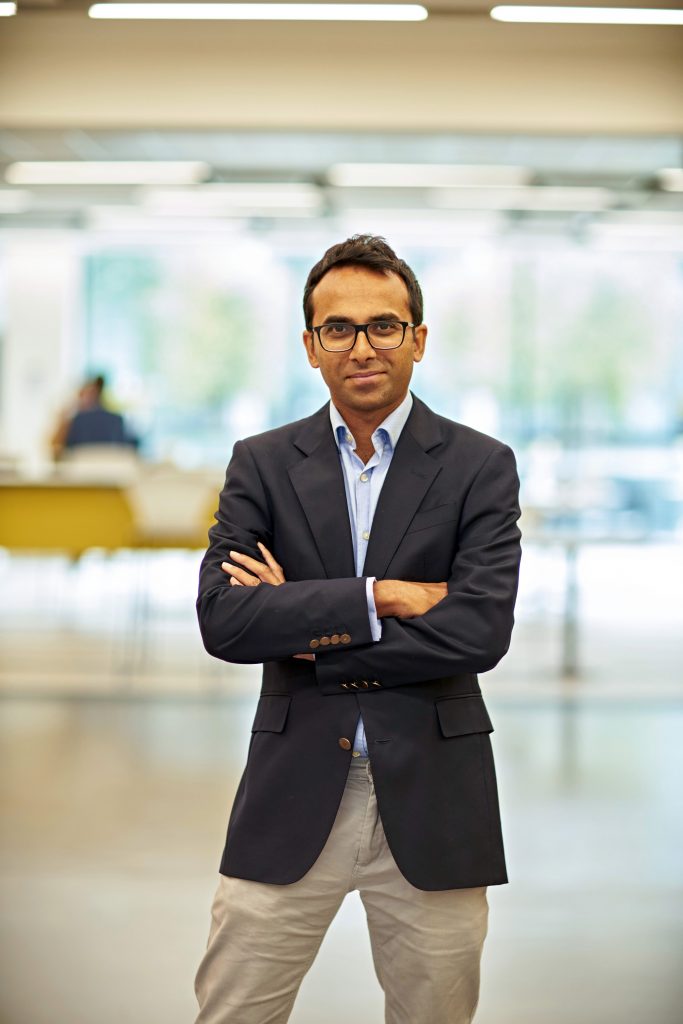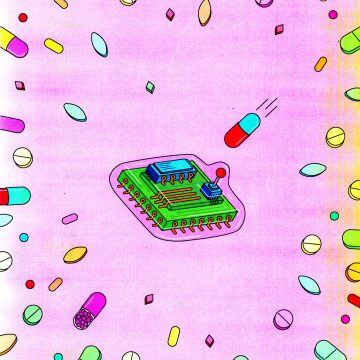Inside the Gupta lab
The latest from Professor Ravi Gupta on what to expect as we head into another autumn with Covid.

Last September Professor Ravi Gupta was named as one of TIME magazine’s 100 most influential people. And no wonder, his work on HIV research was groundbreaking. And now, in his Category Three high-containment lab in Cambridge, Gupta and his team are focused on finding a solution to the rising scale of COVID-19’s global transmission.
One of the first to identify key variants, Professor Gupta is a member of NERVTAG, the government’s advisory committee on threats posted by COVID-19 and other viruses. Here he gives his latest update on what is happening at the lab.
What is the biggest threat at the moment?
The Delta variant. Delta is more infectious, and so better at evading immunity – all it needs to do is avoid enough immunity to make lots of copies (mutations) of itself and transmit. We are working around the clock to understand how these mutations are causing loss of sensitivity to neutralising antibodies from vaccines.
What is the focus of your work?
So far, our work shows that the spike protein of Delta is takes a more mature form than previous variants; it’s cut in two so it’s more efficient, and there are certain mutations that facilitate that. But we are doing extensive lab work to look at exactly how that works, and we’re using a variety of different environments that can mimic the human airway to test it out.
What does your research involve in practice?
Right now, we’re using stem cell-derived organoids (a three-dimensional, laboratory-grown model that can replicate some of the functions of an organ or other multi-cellular structures) to look at the specific differences between Alpha and Delta (and therefore ultimately what that might mean for vaccines and infection waves). We get clumps of cells in a petri dish and then take a three-step approach: first we measure out similar amounts of Delta or Alpha; then we infect the organoids in a high containment (Category Three) lab; and, finally, we look at how much virus is inside the cells and how much is released into the liquid around it, and measure the number of genomes in there.
We’ve also been mixing the two types of viruses with antibodies from people who have recovered from the virus, to see how well the antibodies can fend off infection, and how good the virus is at making copies of itself. In these antibody experiments, we are showing that the Delta is not as well-blocked as the Alpha.
What does that mean for the wider, global community?
Our aim is to understand why Delta has spread worldwide. Our results suggest that it’s not just because it is more transmissible than other variants but also because it is less sensitive to, or well-controlled by, antibodies people have from past infections. We believe breakthrough infections are happening because it is so virulent; when there are so many virus particles around, it’s hard to block them. We’re recommending that vaccine manufacturers make specific Delta vaccines and, obviously, that governments implement infection control measures. Limiting transmission in a comprehensive way is important. To reach population immunity and control transmission, you really need very high levels of vaccination, because this isn’t knocked on the head yet. We want to get vaccines to younger people, and then we’ll be in a much better position.
Should we be worried about other, new variants?
Yes. While COVID-19 is creating chronic infection in individuals it encounters their immune systems and learns how to get around it with variants. That’s what worries me: the virus has a very high propensity to do this, and there will be more variants to come. We spend some time on other (potential variants of concern), but we don’t have the capacity as a group to be able to do everything, and you’re not sure which variant is going to be important. We identified Delta pretty early on, so we try and see the important anomalies and go after them. The virus has a lot of tricks that will keep us very busy. It’s not going to be as easy to control as we thought.
How are you and your team managing?
We’ve been under intense pressure trying to publish things quickly – working on the cutting edge of something that’s in the news every day certainly gets the adrenalin running. Grabbing your leisure time in between, and doing things as a group (taking into account social distancing measures), is very important. Nonetheless, morale is pretty good. We got through lockdown by going out running every other day and we had a stash of booze that we cracked open occasionally – I think every research group has done that during lockdown! Socialising within the groups has been the thing to do because outside socialising hasn’t really been possible.
Professor Gupta is Professor of Clinical Microbiology at the Cambridge Institute of Therapeutic Immunology and Infectious Disease. Read his latest research on the Delta variant replication and immune evasion.







